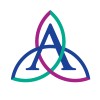
Early Kangaroo Mother Care in Gambian Hospitalised Unstable Neonates
Preterm InfantHypothermia5 moreThe mortality effect of kangaroo mother care in stable newborns <2000g is well established but mortality effect in unstable newborns is not conclusively known. This pragmatic clinical trial aims to investigate the mortality and clinical effects of early continuous Kangaroo Mother Care (KMC) compared to standard care in mild-moderately unstable neonates <2000g in a resource limited hospital setting.

Mild Hypothermia and Supplemental Magnesium Sulfate Infusion in Severe Traumatic Brain Injury (TBI)...
Traumatic Brain InjuryThe investigators hypothesize that hypothermia (body cooling) and additional magnesium sulfate will improve the outcome of severe Traumatic Brain Injury (TBI) patients. This is a study to compare the outcomes of patients with severe traumatic brain injury who have been allocated to one of the following three groups: Group 1 - Conventional therapy following traumatic brain injury Group 2 - Subjects will have their core body temperature lowered to 34C Group 3 - Subjects will have their core body temperature lowered to 34C and will receive a supplemental intravenous infusion of magnesium sulfate.

Xenon and Therapeutical Hypothermia After Successful Cardiopulmonary Resuscitation
Efficacy and Safety of Xenon InhalationSuccessful Cardiopulmonary Resuscitation1 moreIn this clinical trial will be checked, whether 2 hour ventilation with xenon has neuroprotective effects in patients with out of hospital cardiac arrest and successful cardiopulmonary resuscitation

Thermogard™ Efficacy Trial
HypothermiaBurnsThe purpose of this study is to determine if the Thermogard™ central venous catheter can prevent hypothermia (defined as a core body temperature less then 36.0 °C) in severely burned patients who are undergoing surgery for debridement and grafting in the setting of reduced ambient room temperature.

Hypothermia After In-hospital Cardiac Arrest
Cardiac ArrestILCOR Recommendations "On the basis of the published evidence to date, the Advanced Life Support (ALS) Task Force of the International Liaison Committee on Resuscitation (ILCOR) made the following recommendations in October 2002: Unconscious adult patients with spontaneous circulation after out-of-hospital cardiac arrest should be cooled to 32°C to 34°C for 12 to 24 hours when the initial rhythm was ventricular fibrillation (VF).Such cooling may also be beneficial for other rhythms or in-hospital cardiac arrest" (Circulation. 2003;108:118-121). This study ist to investigate the efficacy of mild therapeutic hypothermia on mortality and neurological outcome in patients after in-hospital cardiac arrest.

Study of a New Clinical Device for Reducing Body Core Temperature
HypothermiaThis is a descriptive, nonrandomized, noninvasive, single-group, single-center pilot study of a Core Cooling System (CCS) device for reducing core body temperature in ICU patients at University Medical Center Brackenridge (UMCB) and Seton Medical Center Austin (SMCA). The proposed research on human subjects will provide data that will be used to improve a specialized human heat transfer technique/device. By stimulating specialized blood vessels (arteriovenous anastomoses) AVAs in the palm of the hand, it is possible to greatly increase local blood flow and thus greatly increase the potential for effective heat transfer between the environment and body. The hypothesis of this trial is that the Core Cooling System (CCS) will prove to be a practical, safe, and effective method to raise or lower body temperature in critically ill patients.

Early Coronary Angiography Versus Delayed Coronary Angiography
Out-of-Hospital Cardiac ArrestHypothermia1 moreThis study is a pilot, multi-centered, randomized, clinical trial to evaluate the safety and efficacy of performing early Coronary Angiography (CAG) versus no early CAG in post-cardiac arrest patients without ST segment elevation. Safety will be assessed by evaluating the association of major adverse events (re-arrest, bleeding, pulmonary edema, hypotension, acute renal insufficiency, and pneumonia) with early coronary angiogram. Efficacy will be assessed by a composite endpoint of improved left ventricular regional and global function (both regional wall motion analysis and left ventricular ejection fraction) as measured by echocardiography prior to hospital discharge and favourable neurological function (Cerebral Performance Categories 1 or 2) at discharge.

Mild Therapeutic Hypothermia for Patients With Acute Coronary Syndrome and Cardiac Arrest Treated...
Cardiac ArrestAcute Coronary SyndromeMild Therapeutic Hypothermia for Patients with Acute Coronary Syndrome and Cardiac Arrest Treated with Percutaneous Coronary Intervention (UNICORN) study is designed to determine whether mild therapeutic hypothermia (MTH) applied in patients with acute coronary syndromes (ACS) and cardiac arrest treated with percutaneous coronary intervention (PCI) is associated with better clinical outcomes as compared with therapy without MTH.

Prospective Trial of the Effect of Preoperative Forced-air Warming on Perioperative Body Temperature...
Perioperative HypothermiaThe purpose of this study is to determine if placement of a forced-air warming device prior to institution of regional anesthesia improves perioperative temperature control in patients undergoing total hip arthroplasty.

Therapeutic Controlled Hypothermia in the Treatment of Neonates With Severe Necrotizing Enterocolitis...
Necrotizing EnterocolitisHypothesis: Controlled hypothermia to 33.5C for 48 hours reduces the severity of critical illness in neonates with severe necrotizing enterocolitis.
